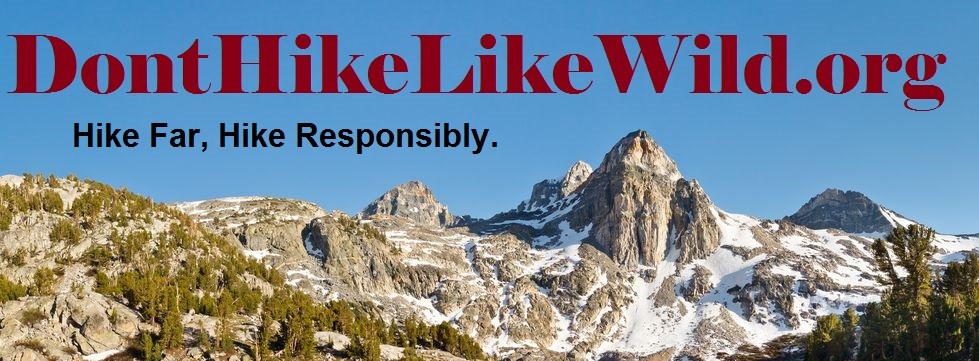Cheryl Strayed is not alone in her tale of setting out unprepared for a major long-distance hike. Many thru-hikers relate tales of mistakes and escapades they made while learning the ropes of extended backpacking. There should be a distinction drawn however between making honest mistakes as part of a learning process, and rationalizing thoughtless actions out of a sense of deliberate helplessness.
Writing in Wild, Strayed is quite candid in relating how before her hike she refused to accept responsibility for her testy relationship with her mother, her failed marriage or her substance abuse. Once on the trail, Strayed describes adopting a similar sense of powerlessness to justify her hapless approach to hiking.
Unfortunately, self-destructive behavior is evident in all corners of our society. From the college student who flunks out of class because maintaining their drinking habit is more important, to the city dweller who adopts a large-breed dog that they have neither the time, nor the means to properly take care of, careless decision making seems to be all too commonplace in our culture. So if the rationalized, irresponsible behavior depicted in Wild is so common in our world, why are we picking on Cheryl Strayed?
Even though Strayed only hiked 1000 miles of the PCT, she still became a member of a community of long-distance hikers. By sharing the trail, campsites, restaurants, and motel rooms with other hikers, one inexplicably becomes a part of this unique, nomadic community. Within this community it becomes quickly clear that we all have an unanticipated impact on each other, both positive and negative. These actions extend from the practical, such as conservation of campsites, to a greater impact on the community at large. It is undeniable that one hiker’s words and actions can influence the reputation of all hikers.
Since the actions of one community member so often impact others, we can view the release of Wild as an opportunity to use Strayed’s story as an example to call attention to destructive behavior on the trail. While certainly none of us are perfect, we are also not accomplished best-selling authors. Certainly most of hikers have escapades of their younger days they would rather forget. Strayed’s willingness to lay her hapless story out on the table for so many to read invites some scrutiny, even if for the most altruistic of purposes.
Some may argue that if an individual chooses to engage in self-destructive behavior that is their choice. Freedom is a paramount value in our culture, and many believe that their actions only affect themselves. The truth is that none of us live in a bubble. So often the behavior of one person has a ripple effect of unintended consequences on others.
Being a natural wilderness environment, the PCT possesses a certain fragility that is easily upset by thoughtless users. Likewise, the community of hikers often rub off on each other. From issues such as the management of personal waste, to conduct in public settings, the actions of one hiker reflect on the integrity of the larger community as a whole. Hopefully Wild inspires us all to hike to a higher standard of thoughtfulness.


